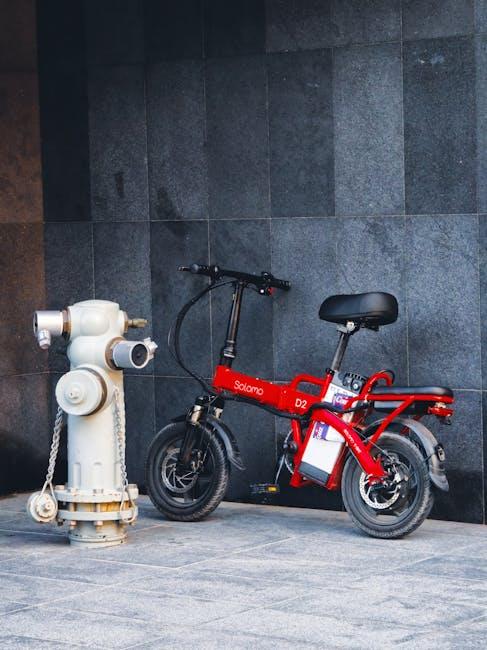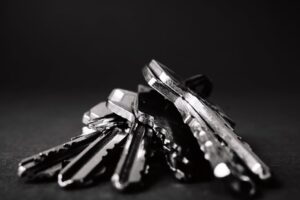In an era where technology seamlessly integrates with everyday life, the humble door lock is undergoing a smart transformation. Gone are the days of fumbling for keys or worrying about lost duplicates-smart locks promise a new level of convenience, security, and control at your fingertips. Whether you’re a tech enthusiast eager to modernize your home or a busy homeowner seeking hassle-free access, understanding how to install these intelligent devices is the first step toward unlocking a smarter future. This complete guide will demystify the process, empowering you to take charge and welcome innovation right at your doorstep.
Table of Contents
- Understanding Smart Lock Technologies and Choosing the Right Model for Your Home
- Preparing Your Door for a Seamless Smart Lock Installation
- Step by Step Installation Process with Pro Tips for Optimal Performance
- Maximizing Security and Convenience with Custom Settings and Integrations
- Wrapping Up

Understanding Smart Lock Technologies and Choosing the Right Model for Your Home
Smart locks come in a variety of designs, each tailored to different lifestyles and security needs. From keypad models to Bluetooth and Wi-Fi-enabled locks, understanding their unique features is key to making an informed choice. Keypad locks offer simplicity and convenience, ideal for families sharing access without needing physical keys. On the other hand, Bluetooth smart locks provide seamless proximity-based entry, perfect for tech-savvy users who prefer hands-free convenience. For those seeking remote control capabilities and integration with smart home ecosystems, Wi-Fi smart locks are the ultimate choice, enabling you to lock and unlock your door from anywhere through your smartphone.
- Keypad Locks: Password access, easy to use, no connectivity required
- Bluetooth Locks: Proximity sensing, energy-efficient, limited range
- Wi-Fi Locks: Remote access, real-time alerts, requires stable internet
When selecting the right model, consider factors such as installation compatibility, security features, and connectivity preferences. Some locks feature tamper alarms and auto-locking mechanisms for enhanced safety, while others focus on sleek design and intuitive mobile apps for managing user permissions. Below is a brief comparison to help you weigh your options:
| Feature | Keypad Lock | Bluetooth Lock | Wi-Fi Lock |
|---|---|---|---|
| Installation | Simple, minimal wiring | Moderate, some tech setup | Advanced, requires router proximity |
| Security Level | Moderate | High | Very High |
| Remote Control | No | No | Yes |
| Battery Life | Long | Moderate | Moderate |

Preparing Your Door for a Seamless Smart Lock Installation
Before diving into the installation process, it’s crucial to ensure your door is primed for a smooth smart lock setup. Start by thoroughly inspecting the door’s condition-look for any warping, cracks, or misalignments that could interfere with the lock’s functionality. A solid, well-fitted door creates a sturdy base for your new device, making security uncompromised. Measure the thickness and style of your door as well, as some smart locks are tailored to specific dimensions. Keep a tape measure handy and double-check all measurements, including backset distance and diameter for the lock borehole.
Next, gather all necessary tools and materials, and clear the installation area. Preparing the doorframe and hardware facilitates a clean, efficient job-think of it as setting a stage for the smart accessory to shine. Remember these key preparation tips:
- Remove old locks and deadbolts ensuring the door surface is smooth and free from debris.
- Check door alignment by closing it slowly to verify the latch lines up with the strike plate.
- Test battery placement spots and replace batteries if the old lock used any.
- Have necessary templates or instruction manuals ready for reference.
| Door Component | What to Check | Why It Matters |
|---|---|---|
| Door Thickness | 1.5″ to 2″ standard | Ensures lock fits securely |
| Backset | 2.375″ or 2.75″ | Aligns latch correctly |
| Strike Plate | Sturdy, not loose | Prevents forced entry |
Step by Step Installation Process with Pro Tips for Optimal Performance
Begin by carefully removing your existing lock hardware, ensuring you keep all screws and components in a labeled container to avoid confusion. Before proceeding with the installation, test-fit the smart lock components to verify compatibility with your door thickness and backset. Tip: Measure your door width and thickness twice-accuracy here ensures seamless installation later. Align the smart lock’s interior and exterior parts meticulously, threading cables through the designated door holes without forcing them, to prevent damage. Use a power screwdriver to tighten screws just enough; overtightening can strip the threads or warp the lock casing, compromising security.
When configuring your new smart lock software, ensure you use a reliable Wi-Fi connection to avoid setup interruptions. Keep your firmware updated regularly for optimal functionality and enhanced security features. Pro Tip: Create a backup PIN or use biometric options if supported, for emergency access. The table below summarizes essential tools and their purposes to streamline your installation process:
| Tool | Purpose | Pro Tip |
|---|---|---|
| Power Screwdriver | Secure screws efficiently | Use adjustable torque to avoid damage |
| Measuring Tape | Check door dimensions | Measure twice, cut once |
| Level | Ensure lock alignment | Perfect alignment prevents malfunctions |
| Wi-Fi Signal Tester | Confirm network strength | Strong signal ensures smooth setup |
Maximizing Security and Convenience with Custom Settings and Integrations
Custom settings empower you to tailor your smart lock’s functionality to match your lifestyle perfectly. Whether it’s setting up time-based access codes for family members or guests, or enabling auto-lock features that engage after a preset interval, the possibilities are endless. These personalized configurations not only enhance security but also add layers of convenience, freeing you from the constant need to manage your door manually. Integrating your smart lock with other smart home devices-such as security cameras or voice assistants-further streamlines your access control and monitoring, creating a seamless ecosystem where your home protects itself while you stay connected effortlessly.
Consider the advantages of combining smart lock integrations with mobile apps and cloud services. Real-time notifications alert you whenever your door is accessed, while detailed activity logs allow you to track and verify entries with ease. Below is a quick glance at some popular integrations and their unique benefits:
| Integration | Key Benefit | Ideal Use Case |
|---|---|---|
| Voice Assistants (Alexa, Google Home) | Hands-free lock/unlock | Quick access while carrying groceries |
| Security Cameras | Visual verification of visitors | Monitoring packages and deliveries |
| Mobile App Alerts | Real-time notifications | Remote monitoring of your property |
| Smart Lighting | Automatic illumination on entry | Safe night-time access |
Wrapping Up
As we’ve explored throughout this guide, unlocking the full potential of your home’s security and convenience begins with understanding-and embracing-the smart lock revolution. Whether you choose a simple keypad model or a sophisticated biometric system, the right installation can transform everyday access into a seamless, secure experience. By investing a little time and care upfront, you’re not just installing a lock; you’re opening the door to a smarter, more connected lifestyle. So, step confidently into the future of home security-your convenience is just a click away.





